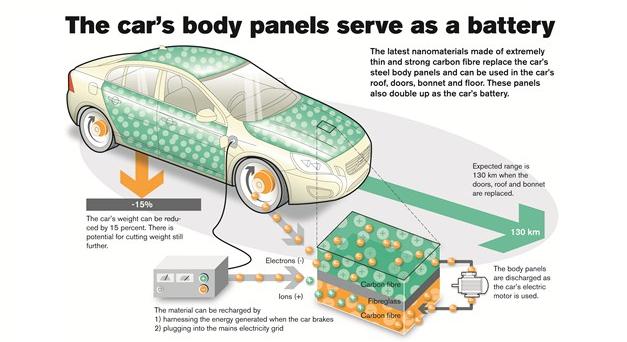Swedish automobile manufacturer Volvo Car Group has developed a new concept for lightweight structural energy storage components, in a bid to enhance the use of energy for future electrified vehicles.

The new component includes carbon fibers, nano structured batteries and super capacitors, which offers lighter energy storage and is eco-friendly.
Funded as part of a European Union research project, Imperial College London acted as the academic lead partner of the project along with eight other major participants. They conducted research on the batteries seen in hybrids and electric cars.
The research project took place over 3.5 years and is now realized in the form of car panels within a Volvo S80 experimental car.
The material developed under this research is recharged by the use of brake energy regeneration in the car or by plugging into a mains electrical grid.
It then transfers the energy to the electric motor which is discharged as it is used around the car.
Volvo has evaluated this technology by creating two components for testing and development. These are a boot lid and a plenum cover, tested within the Volvo S80.
The boot lid is an electrically powered storage component, which is developed to replace the standard batteries.
The new plenum can also replace both the rally bar and the start-stop battery, which saves more than 50% in weight and can supply energy to the car's 12 Volt system.
Image: A composite blend of carbon fibers and polymer resin is being developed to store and charge. Photo courtesy: Volvo Car Group.





